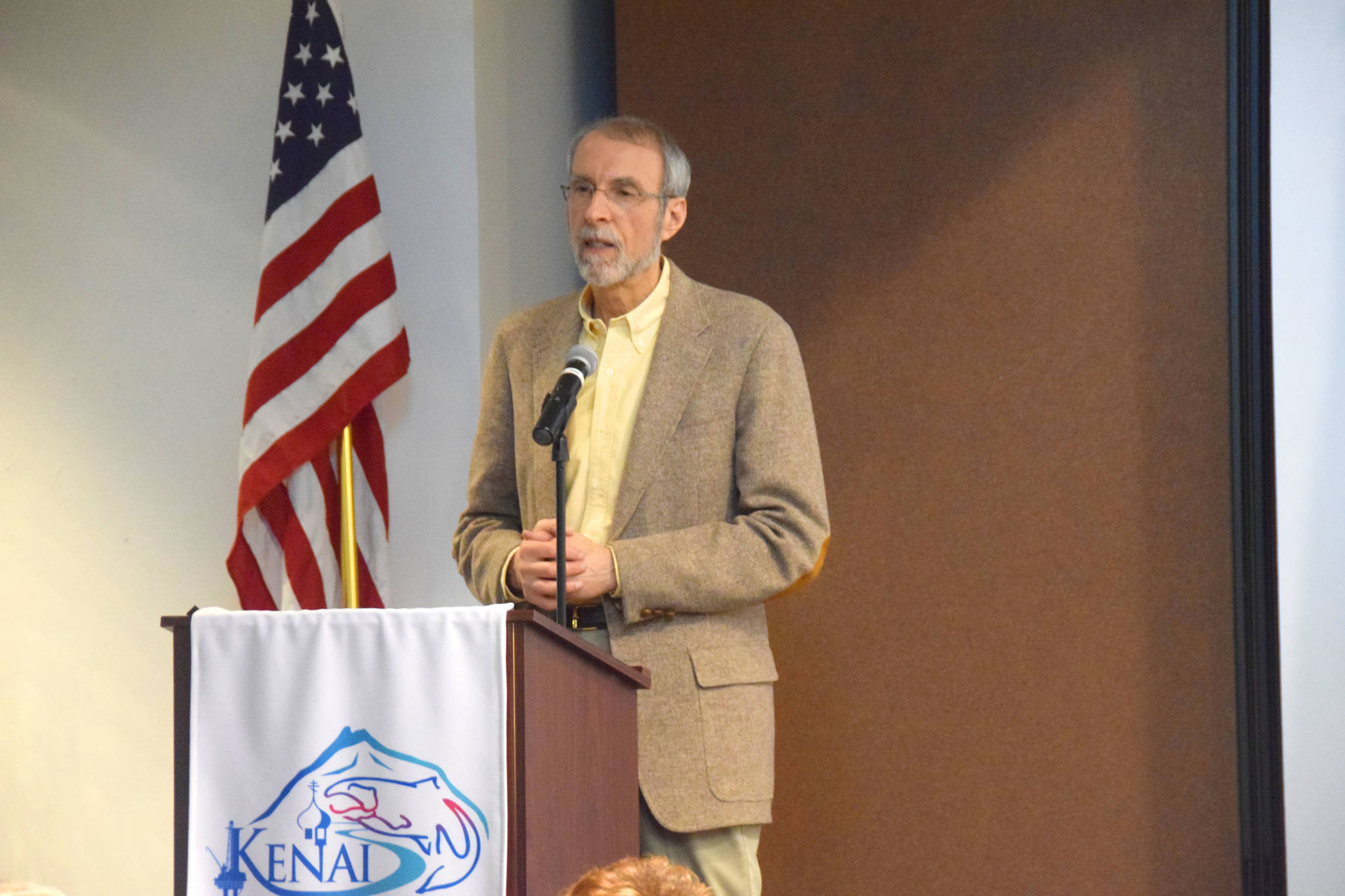Alaska’s past is littered with well-intentioned but poorly conceived ballot questions presented to voters on all matters of topics. Adding the Permanent Fund dividend to that list of politically popular questions now would be as useful as asking a group of 12-year-olds whether they want more candy or more homework.
The governor says he wants to know what voters think of the dividend. He says an advisory vote could settle the question of who has better hearing: The governor, who says he hears from people who want to get a big dividend check, and legislators, who say they hear from people who want the state to fund schools and community services.
People all too often hear what they want to hear.
While considering the governor’s stand that an advisory vote is the best path forward, let’s look back at a similar path that led nowhere.
In 2002, Alaskans cast ballots on a citizen’s initiative for a state-owned North Slope natural gas pipeline. (Yes, we’ve tried this one before, and the outcome is still the same.) The vote was 62% to 38% to create the Alaska Natural Gas Development Authority to buy gas from the North Slope producers, build a multibillion-dollar pipeline to Valdez, use eminent domain to take private property as needed, build a multibillion-dollar liquefaction plant and sell the LNG to buyers in Asia.
But nowhere did the ballot question say how much the project would cost or how the state would come up with its share of the money. Nowhere did it talk about the problems of such a venture. The fine print said the new state corporation could borrow all the money it needed, without any risk to the state. Sure, no problem, there are always investors willing to put up tens of billions of dollars just because some voters with no money at stake think it’s a great idea.
The best part of this history lesson is the initiative’s sponsor statement that was printed in the state voter pamphlet: “As Alaska now faces an impending fiscal crisis in coming years, the marketing of its gas in the most prudent and lucrative manner is paramount. Wouldn’t it be better to solve our fiscal problems through an in-state project such as this rather than taxing Alaskans or taking your Permanent Fund dividend? We think so.”
The long ballot question and misleading backup explanation should have been honestly rewritten to say: “Do you want a North Slope gas pipeline that will not cost you anything, will protect your dividends and your tax-free life, and will make the state rich again? All in favor, vote yes.”
We fell for it.
Tens of millions of dollars of state spending and years later, there is no gas line, there is no more Alaska Natural Gas Development Authority. There is only the sad memory that the public embraced a misleading ballot question because they wanted it to be true.
It’s the same thing today. If the question in Gov. Dunleavy’s advisory vote is, “Do you want a big fat dividend with absolutely no consequences (other than paying more federal taxes on your dividend),” I expect Las Vegas bookies would not even bother taking bets on the outcome.
But if the governor is willing to ask voters an honest question, then at least we would have a fair election: “Do you want a big fat dividend if the price to your community is cutting teachers, increasing class sizes, maybe shutting down university campuses, stopping year-round state ferry service, dumping a lot of the state’s bills on city and borough taxpayers, and generally driving the Alaska economy back into a recession?”
OK, maybe a little harsh. How about we tone it down: “Do you want a big dividend even if it means hurting your community, your neighbors and even dairy cows who will lose their health inspections?”
A misleading advisory vote is worse than doing nothing. It would serve to perpetuate a myth. The truth is, you can have your cake and eat it too — you just have to pay for the cake.
Larry Persily is a longtime Alaska journalist, with breaks for federal, state and municipal jobs in oil and gas and taxes, including deputy commissioner of the Alaska Department of Revenue 1999-2003 and chief of staff at the Kenai Peninsula Borough 2016-2017.

